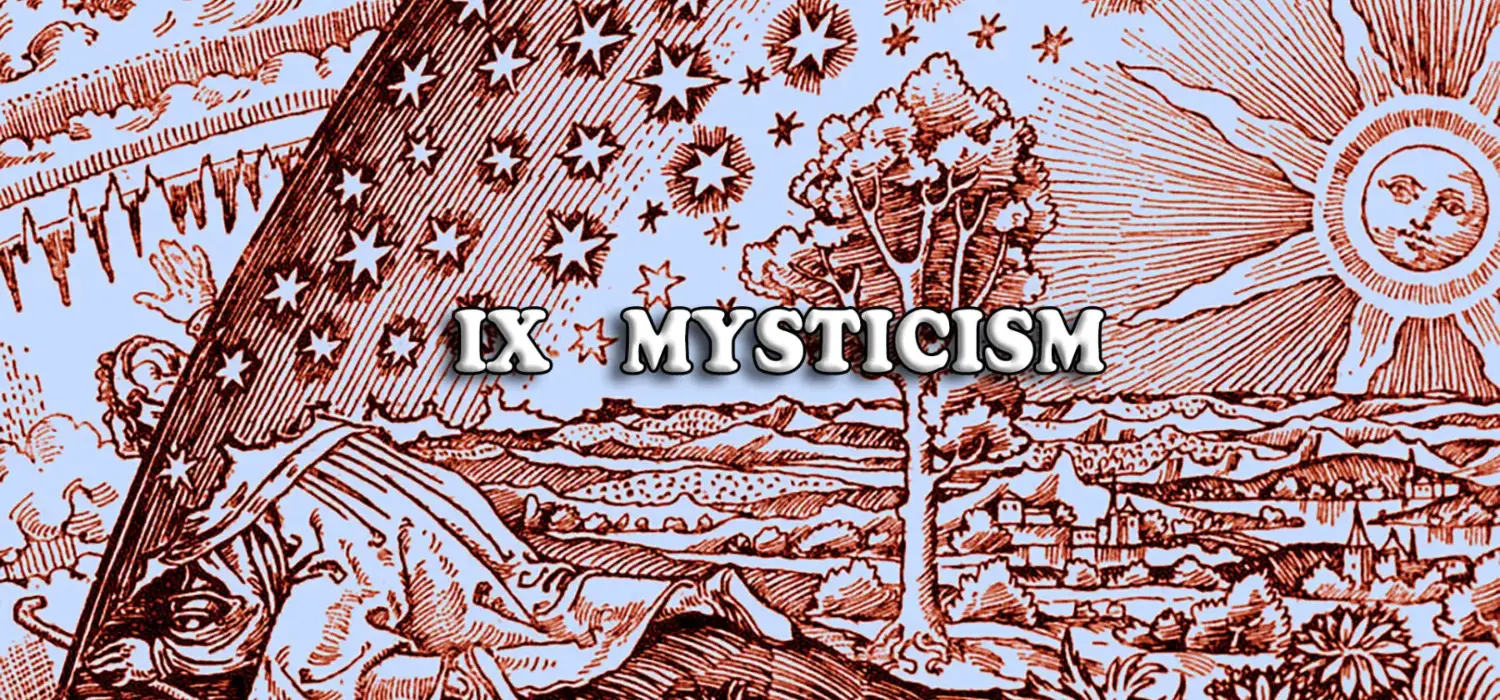
Mysticism, Analogy, and Metaphor IX 3
Sacred Speech Masterclass episode IX
part 3 of 5 parts
hosted by Baba Rampuri
![]()
Mysticism, Analogy, & Metaphor
… science has to now rid itself of mystical elements which had been very much a part of science until the dawning of the European Enlightenment.
![]()

![]()
I want to go back to the 17th Century or, actually, lets go back a 150 or so years before that, to the time of Martin Luther. Martin Luther comes about and, as we have discussed before, is very much involved in this privatization of or at least the beginning of the privatization of Christianity, having a personal relationship, personal choice, reading silently to yourself from the text. And, he goes a step further and he says all this mystical interpretation of the Bible, the Eucharist, and all this other stuff is all hogwash, that it is very clear what the Bible says, it’s very clear what the Bible means, and anybody that takes it into another realm is deluding you. This is basically the position of Martin Luther.
Well, this in combination with the other dynamics of the time, the maturing of the natural sciences, the dawning of Age of the Enlightenment, the European Enlightenment, and so forth, science has to now rid itself of mystical elements which had been very much a part of science until the dawning of the European Enlightenment and the maturing of rationality and science had to be purified of irrational, abstract, kinds of thinking and writing so that the fact a plant looked like an organ in the body that it was used to heal had no longer any merit for the science, for the new maturing of science, that science had to be more focused on highly empirical, rational lines. And so, parallel to the thinking that’s going on in the Christian world—science actually, I believe, creates a new category of literature which we know today as fiction. There is non-fiction which in this mode of natural science is the clear, rational, articulate, what’s the word I want, spasht in hindi (?), transparent, transparent prose, this is what science now requires and for that which is mystical, abstract, even fanciful, mythological, even religious, will now fall under the categories of fiction, literature, out of which comes the novel and everything else, poetry even. So mysticism now is banished from natural science. As time goes on and William James will confirm this at the dawn of the 20th Century that mysticism is something that is ineffable. One cannot articulate it and it is something that is experiential. So mysticism gets placed in this very sort of odd exclusion. It is now pretty much being excluded from religion, except it is pretty much banished to the margins and I am talking about Western religion and I am talking mainly about Christianity here. It’s banished from science. It is put on the level of that which is not rational. William James even removes it from the philosophical. And lays it pretty much quite squarely within the private realm of the psychological. And it has remained pretty much in that situation ever since. So that when we think of mysticism as experiential, what we’re thinking of the way that mysticism has been used in the past century. But previous to the past century, the use of mysticism, “la mystique”, has previous contained only a small portion of what we may consider to be the experiential. India, on the other hand, I would argue that Bharatiya culture cannot really be described as mystical in the same sense that this word has been used in different contexts since the time of the Greeks. And one of the reasons for this is the means of interpretation of Indian texts which, as we have discussed, are, very largely, oral texts. Interpretations follow linguistic lines.
The difference in the way that we approach interpretation, the great thinkers, called the great philosophers of India, such as Adi Sankara, Madhava, Ramanuja, and so forth, were really, ultimately, bottom line, linguists. And their interpretations of text were based on the considerations of speech, and the commentaries that have accompanied various traditions—It is all speech oriented. There is nothing to go into a trance about and imagine and have darshan with God’s ultimate plans for planet earth. This really doesn’t exist as such in traditional Bharatiya culture.